181455
Polyisobutylene
average Mw ~500,000, average Mn ~200,000 by GPC/MALLS, average Mv ~420,000
Sinónimos:
PIB, polyisobutene
Iniciar sesiónpara Ver la Fijación de precios por contrato y de la organización
About This Item
Fórmula lineal:
[CH2C(CH3)2]n
Número de CAS:
Número MDL:
Código UNSPSC:
12162002
ID de la sustancia en PubChem:
NACRES:
NA.23
Productos recomendados
Formulario
chunks
Nivel de calidad
mol peso
average Mn ~200,000 by GPC/MALLS
average Mv ~420,000
average Mw ~500,000
índice de refracción
n20/D 1.5045
temperatura de transición
Tg −64 °C
densidad
0.92 g/mL at 25 °C (lit.)
cadena SMILES
CC(C)=C
InChI
1S/C4H8/c1-4(2)3/h1H2,2-3H3
Clave InChI
VQTUBCCKSQIDNK-UHFFFAOYSA-N
¿Está buscando productos similares? Visita Guía de comparación de productos
Descripción general
Polyisobutylene is a non-toxic hydrophobic polymer that exhibits excellent flexibility at ambient temperatures, biostability, and biocompatibility. It can be used as a polymer matrix to encapsulate quantum dots and for various biomedical applications.
Aplicación
- The use of polyisobutylene-based polymers in ophthalmology: Discusses the application of polyisobutylene-based polymers in ophthalmologic devices, highlighting its potential in biomedical applications (L Pinchuk, 2022).
- Synthesis of a polyisobutylene-tagged fac-Ir (ppy) 3 complex and its application as recyclable visible-light photocatalyst in a continuous flow process: Presents a novel use of polyisobutylene as a support for photocatalysts, enhancing recyclability and efficiency in light-driven chemical reactions (D Rackl, P Kreitmeier, O Reiser, 2016).
- Polyisobutylene-based thermoplastic elastomers for manufacturing polymeric heart valve leaflets: In vitro and in vivo results: Explores the use of polyisobutylene-based elastomers in the production of heart valve leaflets, assessing their physical properties and compatibility (E Ovcharenko et al., 2019).
- Polyisobutylene—new opportunities for medical applications: Reviews the potential of polyisobutylene in various medical applications, focusing on its properties and benefits for healthcare materials (D Barczikai et al., 2021).
- Homogeneous and heterogeneous catalysts for the synthesis of highly reactive polyisobutylene: discovery, development and perspectives: Discusses advancements in catalyst technology for producing high-reactivity polyisobutylene, crucial for high-performance materials (IV Vasilenko, SV Kostjuk, 2021).
Código de clase de almacenamiento
10 - Combustible liquids
Clase de riesgo para el agua (WGK)
WGK 3
Punto de inflamabilidad (°F)
Not applicable
Punto de inflamabilidad (°C)
Not applicable
Equipo de protección personal
Eyeshields, Gloves
Elija entre una de las versiones más recientes:
¿Ya tiene este producto?
Encuentre la documentación para los productos que ha comprado recientemente en la Biblioteca de documentos.
Los clientes también vieron
C Götz et al.
Journal of the mechanical behavior of biomedical materials, 10, 206-215 (2012-04-24)
This study examines the morphology, thermal, quasi-static and long-term dynamic creep properties of one linear and three arborescent polyisobutylene-based block copolymers (L_SIBS31, D_IBS16, D_IBS27 and D_IBS33). Silicone rubber, a common biopolymer, was considered as a benchmark material for comparison. A
Seyed Mojtaba Taghizadeh et al.
Drug development and industrial pharmacy, 35(4), 487-498 (2008-12-02)
In this study, the influence of the ratio of silicone (Si) to acrylic pressure-sensitive adhesive (PSA), polyvinyl pyrrolidone (PVP), and lauryl alcohol (LA) % (wt/wt) on the properties of a drug in adhesive patch containing 4% (wt/wt) fentanyl as model
Hong Seok Choi et al.
Langmuir : the ACS journal of surfaces and colloids, 28(1), 849-854 (2011-11-25)
The optical properties of polymeric materials, such as transmission loss and the thermo-optic coefficient, determine their utility in numerous applications, ranging from nanotechnology to the automotive and aerospace industries. However, because of the wide variation in the physical properties of
A Jonás et al.
Langmuir : the ACS journal of surfaces and colloids, 26(17), 14223-14230 (2010-08-05)
Diffusive mixing in a model polymer blend of limited miscibility (i.e., the pair polydimethylsiloxane/polyisobutene) is investigated. The diffusion process is followed in the actual droplet-based microstructure of the polymer blend, as opposed to the ideal planar geometry used in previous
Ivan Yu Eremchev et al.
Physical chemistry chemical physics : PCCP, 13(5), 1843-1848 (2010-12-25)
Numerous experiments have shown that the low-temperature dynamics of a wide variety of disordered solids is qualitatively universal. However, most of these results were obtained with ensemble-averaging techniques which hide the local parameters of the dynamic processes. We used single-molecule
Nuestro equipo de científicos tiene experiencia en todas las áreas de investigación: Ciencias de la vida, Ciencia de los materiales, Síntesis química, Cromatografía, Analítica y muchas otras.
Póngase en contacto con el Servicio técnico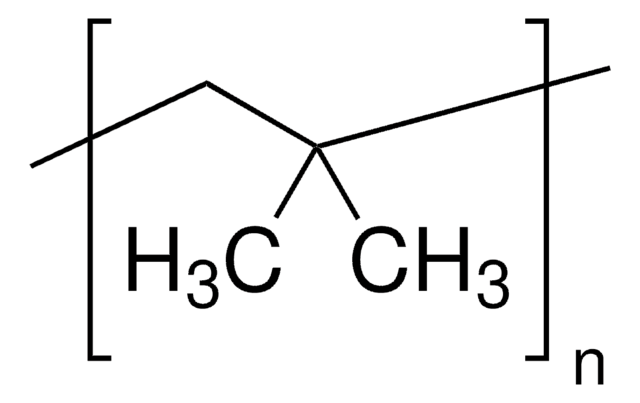
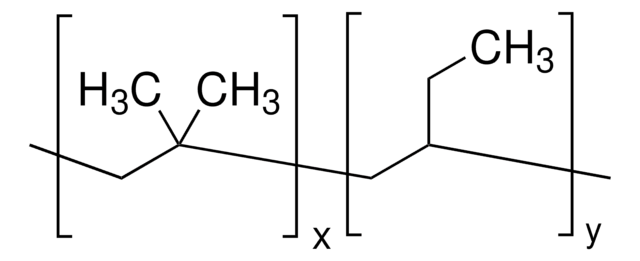
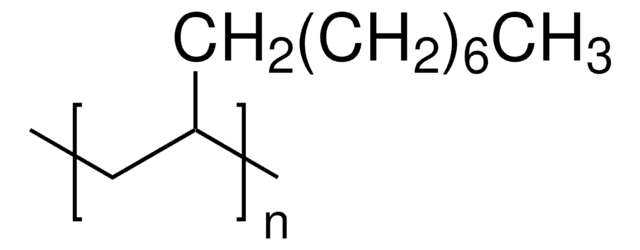

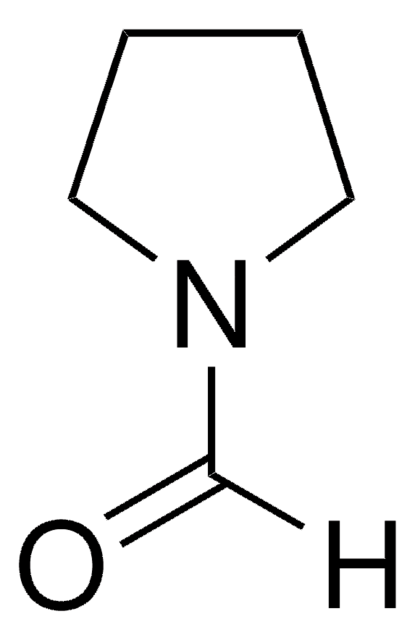
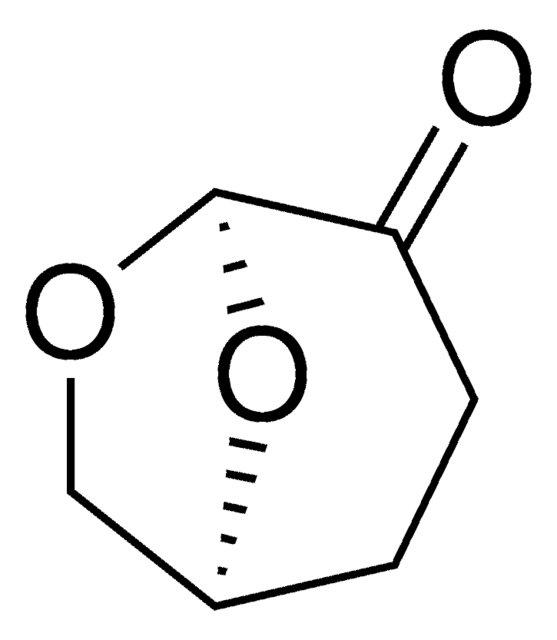
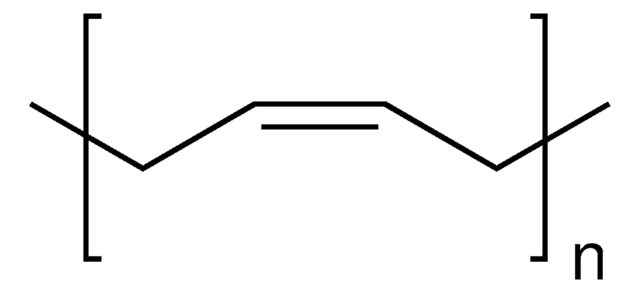
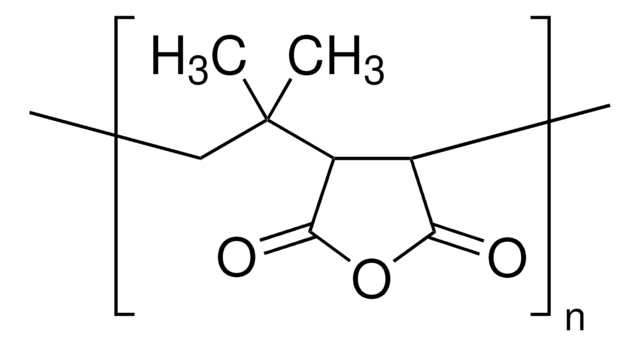
![Poly[(isobutylene-alt-maleic acid, ammonium salt)-co-(isobutylene-alt-maleic anhydride)] average Mw ~60,000](/deepweb/assets/sigmaaldrich/product/structures/208/717/cfb2dcac-b112-4e25-9140-f3649ec430ea/640/cfb2dcac-b112-4e25-9140-f3649ec430ea.png)